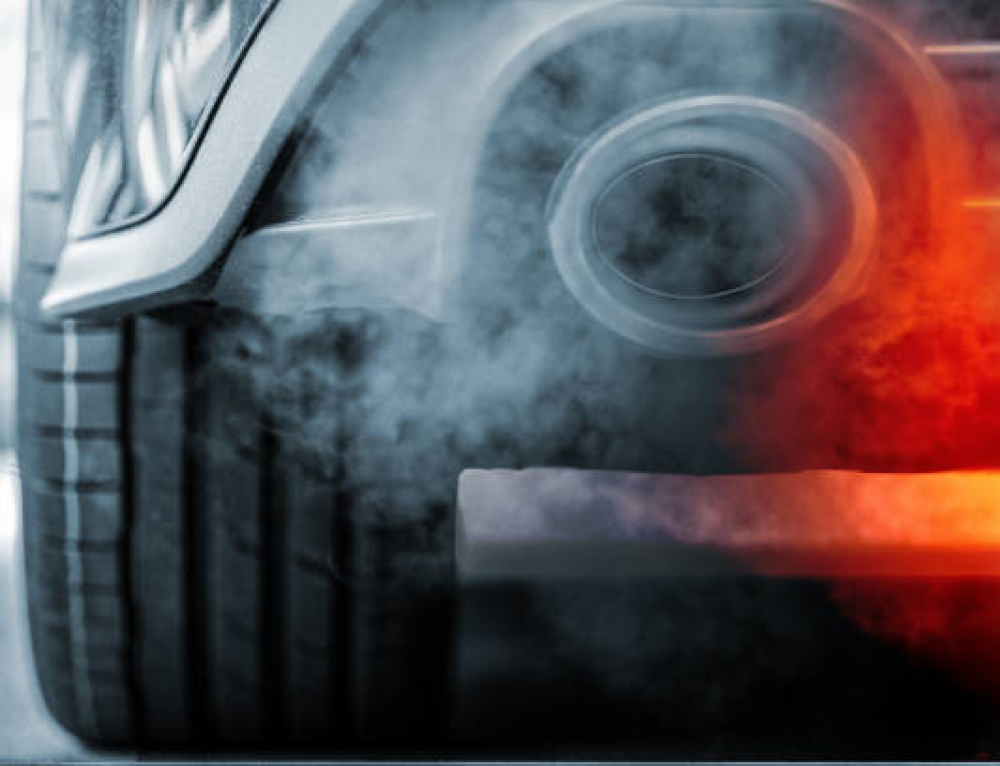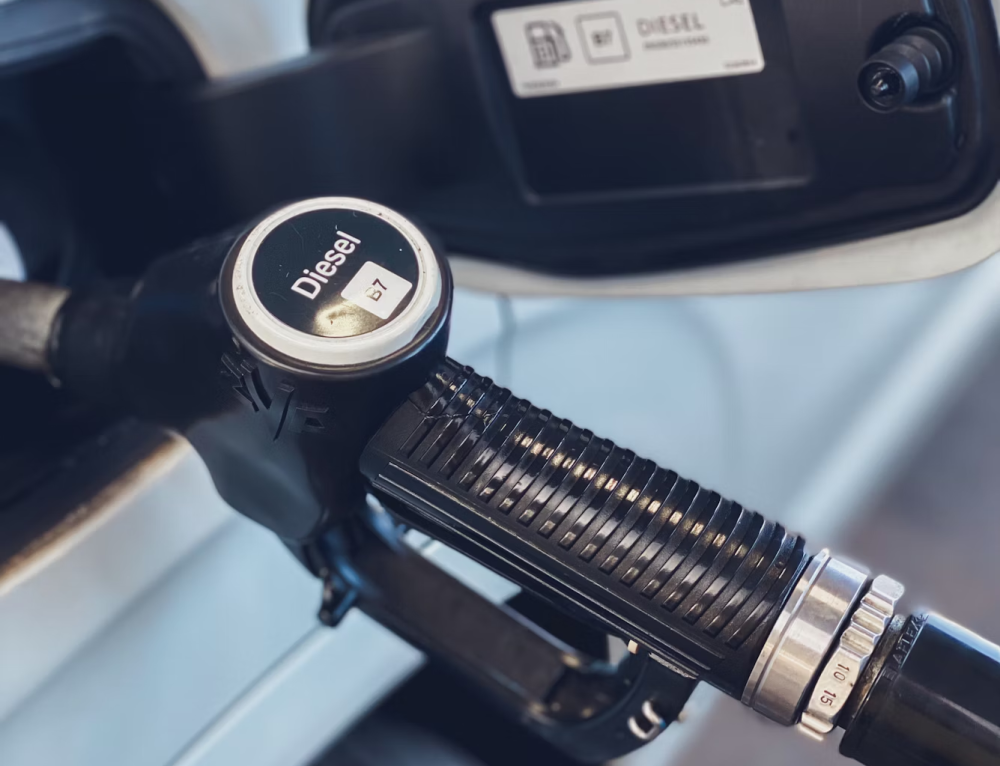Have you ever wondered how diesel engine repair fits into the broader picture of sustainability? In recent years sustainability has become very obvious across different industries.
And, with the rising need to save resources and minimize carbon footprint on nature, sustainable practices in diesel engine repair have become inevitable. Join us in the article, as we venture into green practices for diesel engine repair.
Let’s dive in!
Environmental Impacts of Diesel Engine Repair
However, before we proceed, let us consider how practices in diesel engine repair affect our environment negatively.
Air pollution: Emissions that are harmful to the environment, such as nitrogen oxides (NOx), particulate matter (PM), and volatile organic compounds (VOCs), may be released into the atmosphere during diesel engine repair. These emissions stem from certain practices in diesel engine repair and contribute to smog or severe respiratory illnesses.
Soil contamination: In the case of improper disposal of engine fluids such as oil and coolant on the environment, soil contamination may occur which affects fertility.
Water pollution: During the repair work, spillage of diesel fuel and engine fluids can pollute water bodies. This affects aquatic life and adversely disturbs the ecosystem.
Noise pollution: Noise pollution is another adverse effect of diesel engine repair. Noise may be produced in the course of repairing diesel engines, and it might disturb wildlife as well as affect the environment.
Waste generation: Waste products such as used parts and filters are generated during the maintenance of diesel engines. These wastes may end up in landfills and even pollute the environment if not well managed.
Energy consumption: Energy needed in repair processes may be high. This can lead to an increase in greenhouse gas concentration which affects the climate.
Carbon footprint: The carbon footprint of diesel engine repair comprises emissions generated from repair processes, parts, and material transportation as well as energy usage. If these are not properly handled, they may lead to global warming or natural disasters like hurricanes, heat waves, floods, and wildfires.
Regulatory compliance: Failure to comply with environmental regulations that govern diesel engine repair, including emission standards and waste disposal protocols, can lead to fines for the repair shops as well as their operators; there are legal liabilities involved too.
Habitat destruction: The procedure of obtaining raw materials during the repairing process from diesel engines also causes habitat destruction.
Eco-Friendly Practices For Diesel Engine Repair
For a healthy environment, resource conservation, and long-term viability purposes, there must be sustainable practices in diesel engine repair. Here are some of those practices:
Regular maintenance: Your diesel engines are machines and they can fail due to various reasons. However, performing regular maintenance checks on your fuel filters and other parts of your engine can avoid such major failures and the necessity for frequent repairs, ultimately leading to more sustainable practices in diesel engine repair and optimizing your engine’s performance. An engine overhaul is a good way to correct numerous problems, including common issues, and ensure that your diesel engine is running efficiently and sustainably for miles to come.
Efficient repair techniques: Using energy-saving repair methods such as precision machining and diagnostic tools minimizes the consumption of power as well as material wastage during the process.
Emission control systems: Installing and maintaining emission control systems, like diesel particulate filters (DPFs) and selective catalytic reduction (SCR) systems, helps in reducing harmful emissions from diesel engines. With these systems, you’ll also be improving the air quality and environmental health.
Reuse and recycling: Reusing components and recycling materials such as; metals, fluids, and engine parts, would reduce the volumes of repair wastes. It also reduces the demand for new resources, therefore helping in the conservation of resources and waste minimization.
Energy efficiency: The energy-saving practices like the use of efficient equipment and workflow process optimization minimize energy consumption. It also reduces the greenhouse gas emission level of diesel engine repair operations.
Proper waste management: The promotion of proper waste management like; recycling, treatment, and disposal of hazardous materials helps in reducing environmental pollution which keeps the air safe.
Education and training: The second way of empowering a sustainable repair culture is through the facilitation of training and education for diesel engine mechanics. They have to be trained about environmental regulations and safe handling of dangerous material, disposing of used engine oil, and chemical exhausts the proper way.
Nevertheless, vibrant campaigns to truck owners on these practices could equally be used to bring about a green environment. Picking and going to a diesel engine repair shop that is ASE-certified means that mechanics have been put in severe and various tests and are knowledgeable in diagnosing, servicing, and repairing engines, including those engines having Cummins, Power stroke, or Duramax engines.
ASE has its own course designed for trucks and tractors from Class 4 to Class 8 and also has diesel engine certification beneath this category which is called the ASE Diesel Engines Certification. At this level of trust and competence eco-friendly practices in diesel engine repair are possible, mostly when dealing with fuel delivery and restoring oxidized engine oil that had been sitting for a long time. It can be conducted through regular filter changes.
Advantages of Sustainable Practices in Diesel Engine Repair

Keep reading as we are about to reveal why you should choose sustainable practices in diesel engine repair. Here are some reasons why:
1. Environmental impact reduction
Here’s the truth: Contamination from toxic discharge, heavy energy consumption, and diesel repair wastes like used oil filters and worn-out engine parts, are all hazardous to the environment. With the help of sustainable engine repair and maintenance, you can lower the carbon footprint of such substances.
2. Cost savings
It is affordable to implement sustainable repair practices. With the help of energy-saving technologies and waste minimization projects that use less materials, cost reduction is possible.
3. Extended lifespan
Diesel engines have multiple components. If these components do not get proper maintenance they can degrade much faster than expected.
Hence, by continuously performing sustainable activities like regular servicing and maintenance, lubrication, and efficient operation, one can increase the lifespan of his/her diesel engine and, at the same time, reduce replacement costs.
4. Improved air quality
During the course of repairing diesel engines, hazardous waste can be released to the environment. Such pollutants, if inhaled, can cause acute respiratory illnesses. Adopting practices in diesel engine repair that focus on sustainability can help minimize these hazards.
Sustainable methods of engine operations cut the amount of exhaust emanating from diesel engines. With these sustainable methods, the quality of the air in the surroundings is improved, reducing health risks because of polluted air.
5. Resource conservation
The diesel engine repairing procedure requires some consumables such as fuel, water, and other materials that can result in waste or contamination if not handled appropriately.
The implementation of sustainability practices in diesel engine repair helps mechanics to use these resources in an efficient way. It is also advantageous to the environment by minimizing the total carbon footprint created in the process of repairing diesel engines.
6. Innovation and technological development
To fill the need for a sustainable ecosystem, the adoption of sustainability has led to innovation and the development of new technology and repair methods for diesel engines. Such technologies have caused a shift towards a more sustainable and energy-efficient repair.
7. Risk mitigation
Repairs of diesel engines can lead to environmental disasters, such as oil spills or toxic leaks of hazardous wastes. Thus, there is a need to implement a sustainable repair process.
By following best practices in diesel engine repair, risks associated with the repair process can be significantly reduced by putting in place containment systems as well as emergency response plans. All of these improve the efficiency of the mechanics and the engine’s performance.
Green Technologies for Diesel Engine Repair
As a result of the emergence of a demand for more environmentally oriented practices, several green technologies have been manufactured and used in diesel engine repair to achieve ecological balance. Here are some of them:
Cleaner combustion technologies: The use of cleaner combustion technologies like high-pressure common rail fuel injection systems, compact cylinders, turbochargers, and advanced fuel additives will aid in ensuring better performance of your engine. Moreover, they improve the performance of your fuel system and cut down the pollutant releases of nitrogen oxides (NOx) and particulate matter (PM).
It’s also effective in reducing the amount of soot and pollutants that are emitted into the environment during the ignition process, including black exhaust smoke, making diesel engines more efficient in colder temperatures and achieving a higher compression ratio.
Alternative fuels: Alternative fuels like biodiesel, renewable diesel, and CNG are good options to effectively reduce greenhouse gas emissions by replacing regular diesel fuel. It does so because it makes you less dependent on fossil fuels which is a greener option.
Energy-efficient equipment: The energy-efficient equipment like low-energy lights, electrical or hybrid-powered machinery, and energy-saving HVAC systems help reduce energy consumption. while your car’s performance is improved. They also lower the greenhouse gas emissions generated during the repairing process.
Renewable energy sources: Producing onsite renewable energy from solar panels, wind turbines or geothermal systems is a fantastic way to escape the use of fossil fuels. It also minimizes greenhouse gas emissions due to electricity use in diesel engine repair.
Advanced diagnostic tools and telematic systems: These tools are used by expert diesel engine mechanics to identify and address issues in your engine’s internal components quickly and accurately. Thus, reducing fuel consumption, emissions, and unnecessary repairs.
?Remanufactured parts: Engine parts and components are remanufactured and can be used instead of new ones. This reduces resource consumption, energy use, and emissions associated with manufacturing while extending the lifespan of diesel engines and promoting circular economy principles.
By integrating these eco-friendly technologies into diesel engine repair practices, repair shops can minimize environmental impact, improve operational efficiency, and contribute to a cleaner and more sustainable automotive industry.
Let’s Help You Save the Planet!
As a truck owner, incorporating practices in diesel engine repair is not only important for your truck’s longevity, but it’s also a great way to save the planet. If your diesel engine needs repair, hire an expert mechanic who is skilled in efficient and eco-friendly practices in diesel engine repair.
For your diesel engine repair in the city of Arizona, Phoenix Diesel Repair is the right eco-friendly choice for you. We value you and the planet, therefore our services are quick, efficient, affordable, and sustainable. Our practices in diesel engine repair ensure that your diesel engine is in safe hands with us, even in the case of engine failure.
Trust our team to provide workable repair solutions for your diesel vehicle, including fuel injectors, EGR valve repairs and engine overhaul services, car repair, and other repair services such as auto repair for your car or fleet, and let’s help you save the planet! contact us now!
Frequently Asked Questions
How do sustainable practices in diesel engine repair reduce emissions?
Sustainable practices in diesel engine repair, such as installing emission control systems like diesel particulate filters (DPFs) and selective catalytic reduction (SCR) systems, help reduce harmful emissions. This contributes to cleaner air quality and better environmental health.
Why are regular maintenance and servicing important in diesel engine repair?
Regular maintenance is one of the best practices in diesel engine repair. It helps identify potential issues early, preventing major failures and extending the engine’s lifespan. By optimizing fuel filters and other parts, these practices promote long-term sustainability.
What role does recycling play in sustainable practices in diesel engine repair?
Recycling is a key element in sustainable practices in diesel engine repair. By reusing components, fluids, and materials like metals, repair shops reduce waste, conserve resources, and minimize the need for new parts, which helps in reducing overall environmental impact.
How can diesel engine repair shops minimize waste through eco-friendly practices?
One of the practices in diesel engine repair to minimize waste is implementing proper waste management strategies. This includes recycling materials, safely disposing of hazardous materials, and reducing excess waste by reusing parts and components whenever possible.
How do energy-efficient tools contribute to sustainable practices in diesel engine repair?
Energy-efficient tools and equipment, such as low-energy lights and hybrid-powered machinery, are integral to sustainable practices in diesel engine repair. These tools reduce energy consumption and lower greenhouse gas emissions during the repair process.





